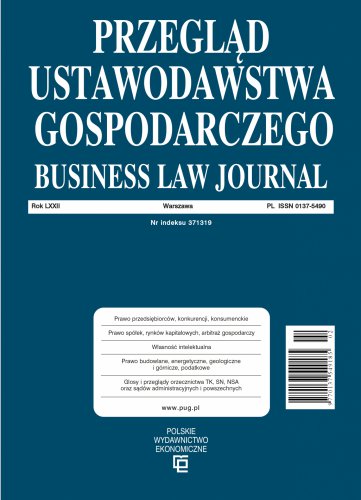Business Law Journal 02/2023
ISSN: 0137-5490
Pages: 50
Publication date: 2023
Place publication: Warszawa
Binding: paperback
Format: A4
Publication date: 2023
Place publication: Warszawa
Binding: paperback
Format: A4
DOI: 10.33226/0137-5490.2023.2.1
JEL: K49
DOI: 10.33226/0137-5490.2023.2.2
JEL: D18, K29, G21
DOI: 10.33226/0137-5490.2023.2.3
JEL: K20
DOI: 10.33226/0137-5490.2023.2.4
JEL: K23
DOI: 10.33226/0137-5490.2023.2.5
JEL: K22
DOI: 10.33226/0137-5490.2023.2.6
JEL: K12, K15, K22, K39
| Odbiór osobisty | 0 € |
| Inpost Paczkomaty | 4 € |
| Kurier Inpost | 4 € |
| Kurier FedEX | 4 € |
| Free delivery in Reader's Club | from 47 € |

